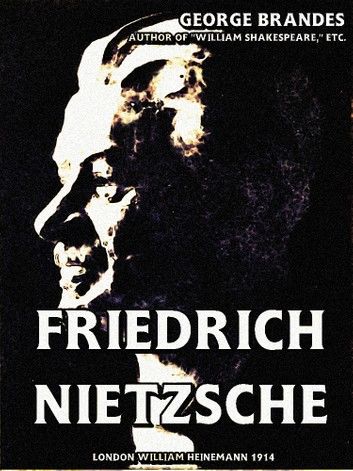| FindBook |
有 1 項符合
Friedrich Nietzsche (English Edition)的圖書 |
 |
Friedrich Nietzsche (English Edition) 作者:Georg Brandes,Arthur G. Chater 出版社:WILLIAM HEINEMANN 出版日期:2015-02-25 語言:英文 |
| 圖書館借閱 |
| 國家圖書館 | 全國圖書書目資訊網 | 國立公共資訊圖書館 | 電子書服務平台 | MetaCat 跨館整合查詢 |
| 臺北市立圖書館 | 新北市立圖書館 | 基隆市公共圖書館 | 桃園市立圖書館 | 新竹縣公共圖書館 |
| 苗栗縣立圖書館 | 臺中市立圖書館 | 彰化縣公共圖書館 | 南投縣文化局 | 雲林縣公共圖書館 |
| 嘉義縣圖書館 | 臺南市立圖書館 | 高雄市立圖書館 | 屏東縣公共圖書館 | 宜蘭縣公共圖書館 |
| 花蓮縣文化局 | 臺東縣文化處 |
|
|
Example in this ebook
AN ESSAY ON ARISTOCRATIC RADICALISM
(1889)
Friedrich Nietzsche appears to me the most interesting writer in German literature at the present time. Though little known even in his own country, he is a thinker of a high order, who fully deserves to be studied, discussed, contested and mastered. Among many good qualities he has that of imparting his mood to others and setting their thoughts in motion.
During a period of eighteen years Nietzsche has written a long series of books and pamphlets. Most of these volumes consist of aphorisms, and of these the greater part, as well as the more original, are concerned with moral prejudices. In this province will be found his lasting importance. But besides this he has dealt with the most varied problems; he has written on culture and history, on art and women, on companionship and solitude, on the State and society, on life's struggle and death.
He was born on October 15, 1844; studied philology; became in 1869 professor of philology at Basle; made the acquaintance of Richard Wagner and became warmly attached to him, and associated also with the distinguished historian of the Renaissance, Jakob Burkhardt. Nietzsche's admiration and affection for Burkhardt were lasting. His feeling for Wagner, on the other hand, underwent a complete revulsion in the course of years. From having been Wagner's prophet he developed into his most passionate opponent.
Nietzsche was always heart and soul a musician; he even tried his hand as a composer in his Hymn to Life (for chorus and orchestra, 1888), and his intercourse with Wagner left deep traces in his earliest writings. But the opera of Parsifal, with its tendency to Catholicism and its advancement of the ascetic ideals which had previously been entirely foreign to Wagner, caused Nietzsche to see in the great composer a danger, an enemy, a morbid phenomenon, since this last work showed him all the earlier operas in a new light.
During his residence in Switzerland Nietzsche came to know a large circle of interesting people. He suffered, however, from extremely severe headaches, so frequent that they incapacitated him for about two hundred days in the year and brought him to the verge of the grave. In 1879 he resigned his professorship. From 1882 to 1888 his state of health improved, though extremely slowly. His eyes were still so weak that he was threatened with blindness. He was compelled to be extremely careful in his mode of life and to choose his place of residence in obedience to climatic and meteorological conditions. He usually spent the winter at Nice and the summer at Sils-Maria in the Upper Engadine. The years 1887 and 1888 were astonishingly rich in production; they saw the publication of the most remarkable works of widely different nature and the preparation of a whole series of new books. Then, at the close of the latter year, perhaps as the result of overstrain, a violent attack of mental disorder occurred, from which Nietzsche never recovered.
To be continue in this ebook
|











